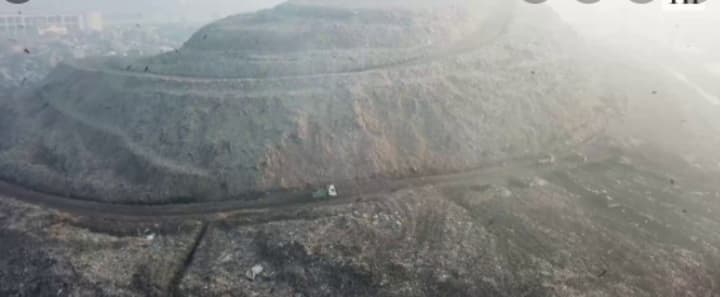Quiz material for the World Environment Day
On this occasion, a quiz is conducted on the basis of this story-post

Environment, as per dictionary definition, means the natural world, as a whole or in a particular geographical area, especially as affected by human activity.
Every year, June 5, is observed as World Environment Day. The purpose of this day is to spread awareness about the threat to the environment due to rising pollution levels and climate change.
The first time World Environment Day was celebrated was in 1974 with the slogan “Only one Earth”. On this day, governments, NGOs, and citizens put their efforts to spread awareness above the importance of conserving the environment and negate the impact of human activity on the environment.
How did it start?
It all started from a book.
Published in 1962, “Silent Spring” was an extraordinary book that opened the public’s eyes to the dangers of DDT, the first broadly-used synthesized pesticide, to wildlife and human health. Due to the public outcry raised by Silent Spring, DDT was banned in 1972, but the impacts of Carson’s book did not end there. For the first time, the environment became a part of the public consciousness, and more than 50 years later, we see the effects of that as people across the world take up Carson’s banner in the modern-day environmental movement.
To conserve the environment from degradation, we need to understand the cause of this degradation, and the biggest reason for environmental pollution is the waste we produce.
Though there are different classifications of wastes depending on their treatment. But for a layman, there are two commonly known types of waste:
1. Biodegradable waste. Any organic material that can be degraded (or completely destroyed) without harming the environment is a biodegradable waste. For example- Vegetable waste.
2. Non-biodegradable waste. This waste cannot be degraded (or completely destroyed) and harms the environment the most. For example- Plastics.
But why plastic waste is not degradable?
It is all because it never fully goes away, it just breaks into little pieces. Sunlight and ocean waves cause the plastic to break down into smaller and smaller particles, but they never completely biodegrade. It would have been better if plastics could be recycled. But unfortunately, this is not the case. Among plastics, Cigarette butts are the least recyclable waste. It contains multiple materials including cellulose acetate, plastic, as well as a host of toxic chemicals. And that’s why it is the most ubiquitous type of “litter” on the planet. It comprises half of all littered objects, and they are consistently the most common litter found on beaches during the annual International Coastal Cleanup Day.
The only way to completely destroy plastics is to incinerate.
Because if we don’t destroy plastics it will end up in Oceans as the plastic waste we throw on land is washed out through lakes, rivers and storm drain when it rains and ends up in oceans, as it is happening now.
Have you heard of the “Great Pacific Garbage Patch”?
It is a concentrated area in the North Pacific of mostly tiny particles of plastic that you cannot easily see. Capt. Charles Moore of Algalita Marine Research Foundation discovered concentrated plastic debris caught in the remote North Pacific Gyre in 1997. Later, researchers at 5 Gyres characterized the pollution as a “plastic smog” because most of the particles suspended throughout the water column are barely visible.
If not heard, you must have heard about the “garbage mountain” in Delhi.

In the capital city of India, there are three landfills of waste, which due to the collection of years of waste have now taken the form of a mountain. Even vehicles can ride on those garbage piles in a similar fashion as they travel on a mountain.
The National Tribunal in 2019 assessed that it will not take less than a decade to flatten the largest dumpsite of Delhi in Ghazipur.
But how can we as a group of small people stop plastic waste generation and pollution? It seems like an impossible task but someone has rightly said, “Never doubt that a small group of thoughtful, committed citizens can change the world; indeed, it is the only thing that ever has.”
A small step we take in our individual lives can help stop plastic pollution. For example:
a) Refusing single-use plastic bottles, straws, to-go containers and coffee cups and lids
b) Bringing our own reusable bags wherever we go shopping or just need to carry stuff
c) Asking merchants, restaurants and other establishments we frequently visit to consider using plastic-free containers and other stuff.
d) Turning off light points or electrical appliances when not in use.
e) Using both sides of the paper.
… and many more.
On an ending note, let me tell you some interesting facts on the occasion of Environment Day:
1. The top five Indian states with the highest percentage of forest cover as a percentage of total geographical area are Mizoram (84.53%), Arunachal Pradesh (79.33%), Meghalaya (76.00%), Manipur (74.34%) and Nagaland (73.90%).

2. Experts believe that continuous noise levels in excess of 90 decibels can cause loss of hearing and irreversible changes in nervous systems. The World Health Organization [WHO] has fixed 45 decibels as the safe noise level for a city. That’s why many Indian states curb loud music activities after 10 PM to maintain safe noise levels.
3. Union Carbide Limited. This company had a byline which went “What we do will touch your lives in some way every day.” Ironically this is the company which caused the worst industrial disaster in history, the Bhopal Gas Tragedy.
With this lemme end my story-post here.
Thank you for your patience.
Celebrate this day with the thought in mind that earth is the only place we can live on. It is our responsibility to conserve the environment.
Do participate in The Earth Day Quiz on June 5th, organized by the unravelling_jewel, and get a chance to win cash prizes!
P.S. The quiz will have 10 questions all based on this story post only. Read carefully!
About the Creator
Anjali Mehra
I am a student, who has to face lots of problems regarding studies, living alone in an unknown city, dealing with a variety of people. Despite all these problems, I always stay positive, and that's what my stories also reflect!






Comments
There are no comments for this story
Be the first to respond and start the conversation.